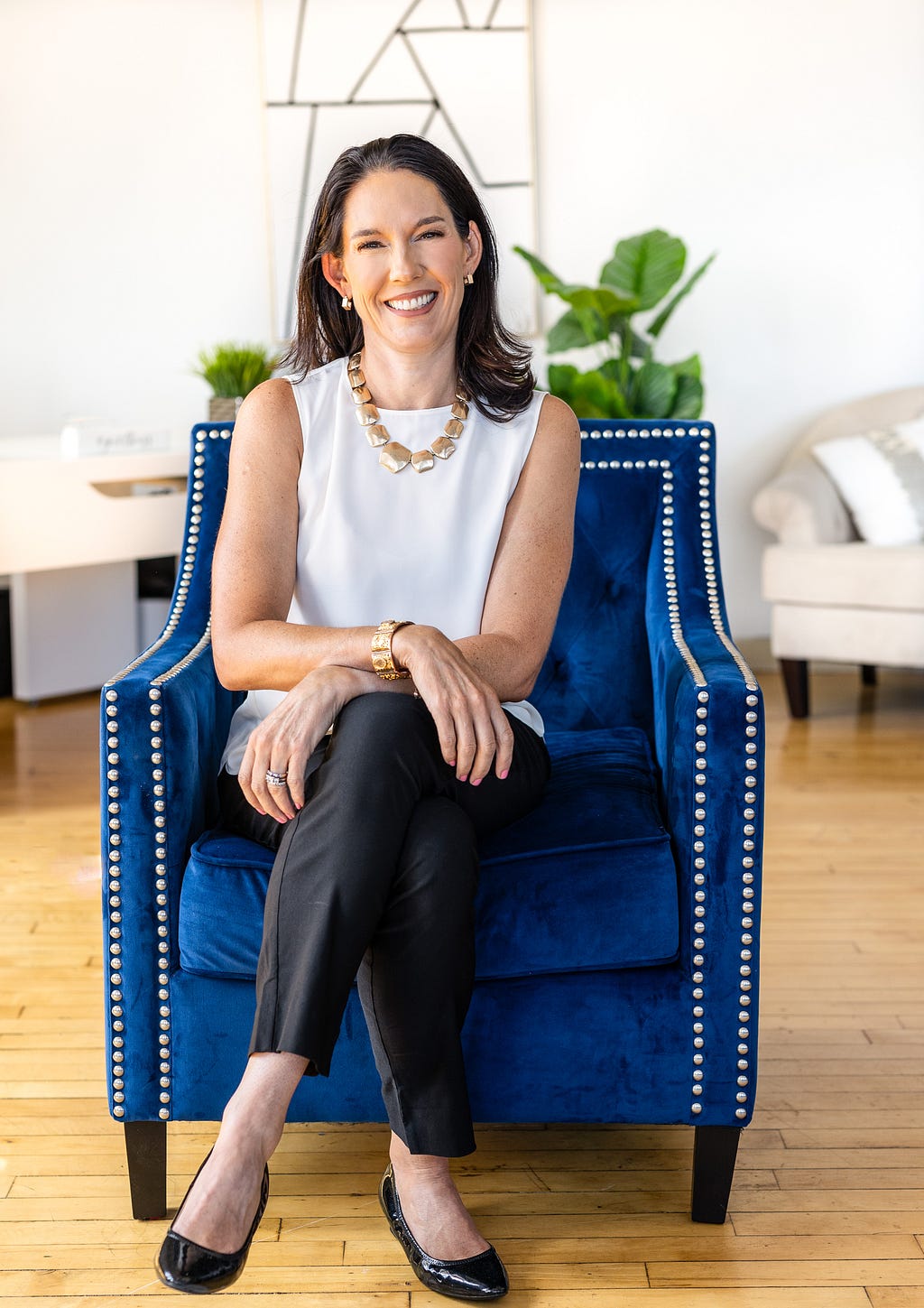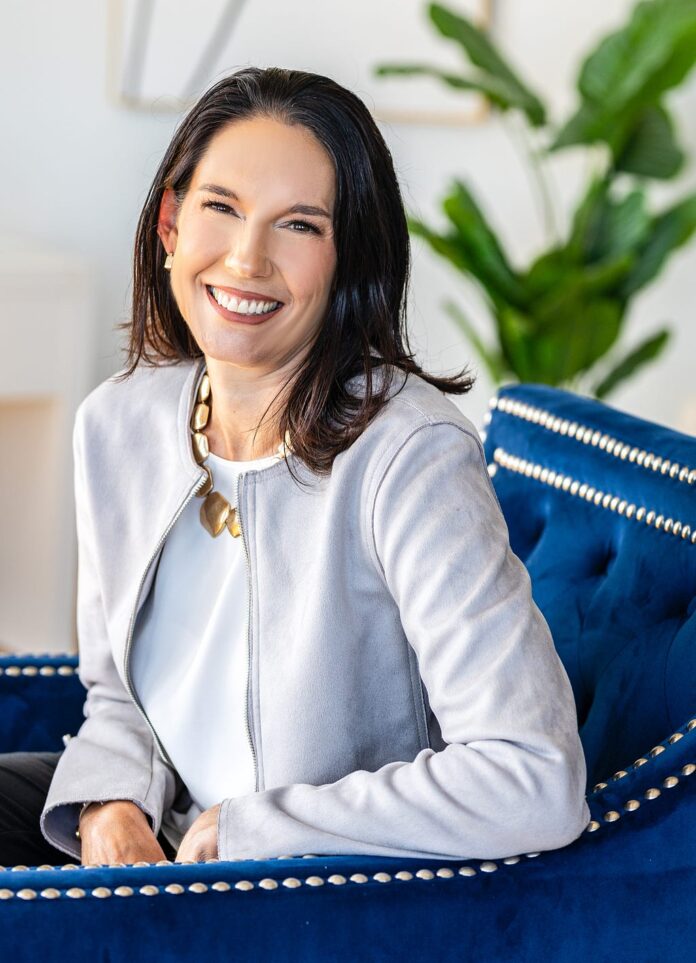An Interview With Jake Frankel
Commitment: Understand that writing a book is a journey that demands time, planning and dedication. For me, this commitment meant sacrificing leisure time and maintaining mental persistence to adhere to the plan that I had created.
As part of my series about “How to write a book that sparks a movement” I had the pleasure of interviewing Julina Ogilvie.
Julina is a Partner and Wealth Advisor with Principle Wealth Partners, a Certified Private Wealth Advisor and Certified Investment Management Analyst with over twenty years of industry experience. Before joining Principle Wealth Partners, she held executive roles at J.P. Morgan Asset Management and Lord Abbett & Co. where she used her extensive knowledge of capital markets to educate the country’s top advisors. Julina is a passionate advocate for financial literacy, with a special focus on empowering women. She has made significant strides in this mission through her podcast, Women on Wealth, which equips women with essential financial knowledge. In 2024, Julina took her commitment a step further by launching her book, Money Confident Girls, a valuable resource for parents seeking financial empowerment for their girls. Julina is an accomplished speaker and strategist who has presented wealth management concepts to thousands of financial professionals and clients. A sought-after expert, she been featured in national and international media publications including CityWire, Parents.com and MoneyGeek. Julina currently sits on the Ethics Board of the Investments & Wealth Institute, serves as VP of Finance at the Westport Woman’s Club and sits on the Board of the River House Adult Day Center. She resides in Fairfield, CT with her husband Doug, their daughters Kaylin and Sidney, and two dogs Mudd and Sierra.
Thank you so much for joining us! Can you share the “backstory” of how you grew up?
I grew up at a young age in South America. We spent the first six years of my life in Brazil, followed by several more years in Venezuela. There was a lot about this upbringing that was not normal, such as hiding in bathtubs and fleeing cities that were under militia attack. During this time, we visited impoverished villages with mud-thatched homes. Witnessing families that had nothing, no running water or even shoes, is a memorable experience. To think of how you could live if you lost everything was a frightening experience for me. My parents’ divorce also taught me how money impacts a family. This occurred back in the US, when I was in high school. Before their separation, my father was unemployed, and they were open about the financial stress. Preparing to send me, their oldest child, off to college was part of the conversation. I felt guilty realizing what impact this had on them. I was now old enough to comprehend the dynamics and emotions around money.
When you were younger, was there a book that you read that inspired you to take action or changed your life? Can you share a story?
Unfortunately, no, there was nothing I found that discussed finance or money.
What was the moment or series of events that made you decide to bring your message to the greater world? Can you share a story about that?
My husband, Doug, who is also in finance, was home a lot more during the COVID-19 pandemic. I observed my discussions with Doug and my two girls about money, in particular about allowance. I realized that if two individuals who work in finance struggle with these conversations, I have an obligation to share with others the ideas and stories about finance that have been shared with me.
What impact did you hope to make when you wrote this book?
The impact was two-fold. First, the importance of financial awareness needs to start at a young age. It should be as young as possible. Second, it is the primary responsibility of the parents or guardians to ensure that future generations are prepared. The goal is to shift the narrative around money from taboo and anxiety to confidence and empowerment for our future generations.
Did the actual results align with your expectations? Can you explain?
Most of this feedback comes from women who have shared their lack of financial education and what that has created. Some of these stories include professional women who had all of their financial assets taken by their husbands (one a high school sweetheart), to a woman who used her entire 401(k) to purchase a home because her realtor told her she could to women that admit they spend more than they make, but they have no choice. All of them wish they had learned simple lessons at an early age to set the foundation for their larger financial decisions.
What moment let you know that your book had started a movement? Please share a story.
The response since the book’s publication has been overwhelming. Countless individuals have reached out, sharing their personal emotions and experiences regarding money. The feedback not only highlights a growing awareness of how to educate girls about finances but also underscores the need for adults to improve their own financial practices.
What kinds of things did you hear right away from readers? What are the most frequent things you hear from readers about your book now? Are they the same? Different?
The most common response I hear from readers is that they wished someone had taught them this when they were younger. That response has not changed since the book was first published.
What is the most moving or fulfilling experience you’ve had as a result of writing this book? Can you share a story?
What fulfills me the most from this journey is when parents tell me what action they have taken as a result of reading my book. One woman told me that she is going to set up a Roth IRA for her daughter who just started working. She shared that as a single working mom, she does not feel that she is adequately prepared for retirement. She told me that she never wants her daughter to have the same anxiety as she does.
Have you experienced anything negative? Do you feel there are drawbacks to writing a book that starts such colossal conversation and change?
I experienced brief criticism that financial literacy should be a focus not just for girls but for boys as well. I completely agree. However, as I share in the book, there are several challenges that start at a young age and remain throughout their entire lives. In the book, I address social influences, the confidence gap, the wage gap, divorce, the longevity gap, and debt.

Can you articulate why you think books in particular have the power to create movements, revolutions, and true change?
I believe that books and any other form of communication have the power to create a movement and question current societal norms. My goal was to educate, inspire, and provoke a shift in how we raise our girls.
What is the one habit you believe contributed the most to you becoming a bestselling writer? (i.e. perseverance, discipline, play, craft study) Can you share a story or example?
For me, bridging the confidence gap between deciding to write a book and actually completing and publishing it was crucial. I discovered that leaning on a support group was integral to this process. It enabled me to meticulously plan out each stage, leading me step by step towards the realization of my book.
What challenge or failure did you learn the most from in your writing career? Can you share the lesson(s) that you learned?
The largest challenge for myself and most individuals is ourselves. It starts with self-doubt and we build a laundry list of ideas as to why we shouldn’t write a book (all valid by the way), which include costs and time away from family and careers.
Many aspiring authors would love to make an impact similar to what you have done. What are the 5 things writers need to know if they want to spark a movement with a book? (please include a story or example for each)
- Passion: It’s crucial to have a genuine passion for the message you wish to convey. My passion for empowering my two girls and others fueled my desire to write Money Confident Girls.
- Commitment: Understand that writing a book is a journey that demands time, planning and dedication. For me, this commitment meant sacrificing leisure time and maintaining mental persistence to adhere to the plan that I had created.
- Planning: Craft a well-thought-out-plan, but remain flexible enough to adapt it as circumstances change. This is especially true if you still have other personal and business-related activities that you cannot walk away from as you go through this process.
- Execution: Surround yourself with a supportive team, whether it’s editors, marketers, publicists, families and friends. This team is essential for executing your plan effectively.
- Enjoy the process: Despite the pressure of managing your time and self-doubt that may arise, remember to enjoy this journey.
The world, of course, needs progress in many areas. What movement do you hope someone (or you!) starts next? Can you explain why that is so important?
Personally, I aspire to see the dialogue of financial literacy to expand further. Although my book primarily targets girls, I firmly believe that this topic is critical for individuals of all ages, genders, demographics, and ethnicities.
How can our readers follow you on social media?
LinkedIn: https://www.linkedin.com/in/julina-ogilvie-cima%C2%AE-cpwa%C2%AE-90b12a11/
Thank you so much for these insights. It was a true pleasure to do this with you.
Julina Ogilvie On How To Write A Book That Sparks A Movement was originally published in Authority Magazine on Medium, where people are continuing the conversation by highlighting and responding to this story.


